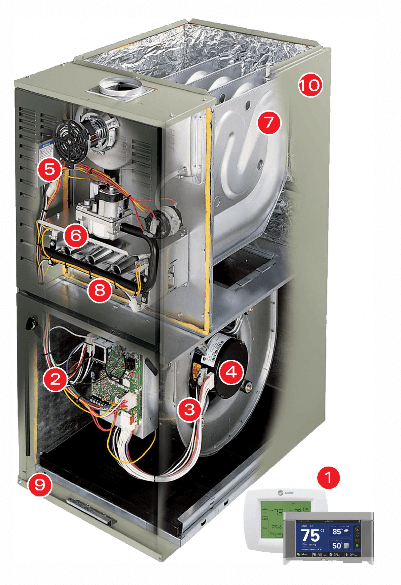Let's talk!
Five Questions to Ask Before Buying a New Air Conditioner or Fu
-

Learn when it's time to replace your A/C system and what to understand prior to you purchase.
Whether you reside in a warm or cold climate, it's always a great idea to inspect out your heating, ventilation and air conditioning (A/C) system.
However how do you understand if you require a brand-new system-- and what do you need to understand before buying a brand-new HVAC system to make a wise purchase?
When to Replace
You may need to change your system if any of these indications take place:
- You see a spike or upward trend in your energy expenses.
- You're spending for frequent repair work.
- Your house isn't as comfortable as you would like it to be; perhaps it has hot areas or cold spots, is too dry or too damp, or has large temperature level swings.
- Your boiler, furnace or a/c is more than 12 years old.
Follow these basic guidelines to approximate the life-span of your system: Condensers and air handlers usually last 12 to 17 years; boilers typically last 15 to 25 years; and heaters can last 15 to twenty years.
Contact someone experienced and reliable to help you understand whether you require to change any part of your system. Most A/C business offer a no-cost examination of your existing system and will talk about alternatives.
What to Ask
To identify if you require a brand-new A/C system, answer the following questions:
1) How crucial is energy efficiency to you?
There are a lot of measurements for effectiveness, and each system has its own kind of measurement. It's always a winner to pick an ENERGY STAR-certified system.
2) What's the return on financial investment?
There's usually a seven-to-15-year repayment duration for a brand-new condenser, air handler, boiler or heater. Having these new products will assist increase your home's resale value.
3) What size system do I require?
Size is identified with a load computation. For example, the boiler estimation is based upon the number and size of radiators and baseboards. A/c, heatpump and furnace loads are based mostly on cubic video footage, but there are https://furnace-repair-toronto.ca other elements, including the instructions your home deals with, insulation, and the size, type and number of windows you have. Needless to say, it gets made complex. HEATING AND COOLING professionals have software that can carry out the estimation for you.
4) Are there other expenditures associated with setup?
There might be included expenses, if, for example, somebody requires to update their electrical panel to accommodate the AC system. Likewise, consider if you desire a humidifier or air cleanser-- a terrific concept if somebody in the house has allergic reactions, asthma, dry skin or bloody noses.
5) What system is right for me?
This response depends upon your spending plan and the convenience you want. A higher-end system will be more efficient, provide you more of even temperature levels throughout your house and have less humidity swings, Kenyon says.
You might also consider your return on financial investment. If you're going to be in your home for twenty years, you might want to invest more for a higher-end system.

